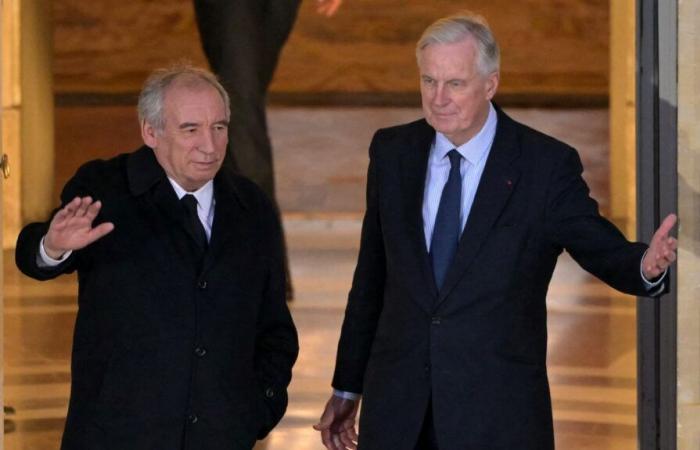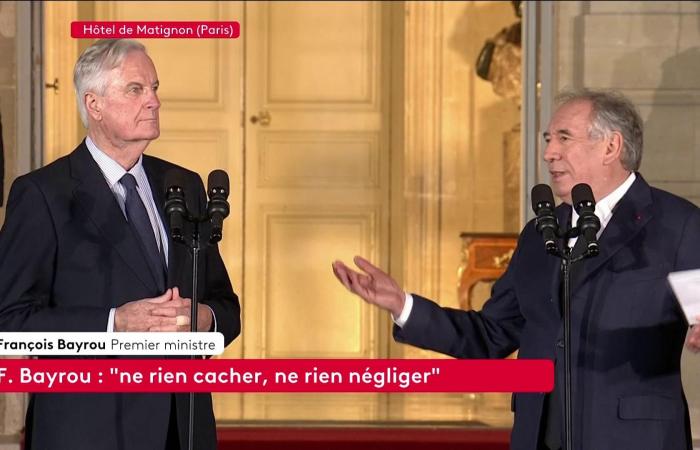The ceremony is well established, for the third transfer of power of the year to Matignon. The new owner enters the courtyard, walks the red carpet and climbs the stairs while being greeted by his predecessor. François Bayrou outlined in a few minutes, Friday December 13, the broad outlines of his action as he will now tackle the task of forming his government. Perhaps certain members of the outgoing team who were gathered in the audience, from Bruno Retailleau to Anne Genetet, cherish the hope of extending their ministerial mission to the Interior or Education.
“Reconciliation”, “the only possible path to success”
The new Prime Minister did not minimize the scale of his task, in a 10-minute speech. “I know that the chances of difficulty are much greater than the chances of success. I know nothing about the Himalayas that lie before us. (…) I know all that. I think we must try .” The former High Commissioner for Planning hopes to find a “unprecedented path” towards reconciliation, the only way according to him for his government to last.
Handover
The Palois could not help but mention on December 13 the birthday of Henri IV, “a friend for [lui]“, and to compare himself to the king who tried to reconcile Catholics and Protestants at the end of the 16th century. “He based his meeting with France in more difficult circumstances. (…) If I can in turn, I will try to serve this necessary reconciliation. I think this is the only possible path to success.”
François Bayrou wants to “give opportunities to those who don’t have them”
François Bayrou presented his two obsessions. “The first is the glass wall that has been built between citizens and the authorities”. The new tenant of Matignon also presented as a “sacred duty” of “give opportunities to those who don’t have them”. A central commitment of candidate Macron’s program in 2017, which François Bayrou had already endorsed at the time, and which can find an echo on the left.
He did not necessarily seek to mark his difference with Michel Barnier, who is the same age as him (73 years old) and with whom he shares old commitments, for Europe, as the outgoing one recalled, and at within the ephemeral Renovators movement, a collection of RPR and UDF deputies who wanted to shake up the right at the end of the 1980s.
“We have put the State back on track”, welcomes Michel Barnier
The short-lived tenant of Matignon took stock of his three months spent at the head of government. “We have launched construction sites.” Unable to put forward results, he highlighted his method (“politics differently with few announcement effects, by talking less, by listening more”), ses intentions (“we got the state back on track”), recalling the difficulties: “I knew from day one that my government’s time was running out.”
He also returned to the budget episode, which cost him his place. “We were close to a balanced agreement, particularly in the Senate. This deficit has not disappeared since the motion of censure.” “Our country is in an unprecedented and serious situation”he warned. “I continue to believe that our country needs appeasement, dignity, reconciliation.” It is no longer him who is responsible for this delicate mission.







